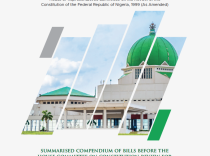A Bill for the regulation of In-Vitro Fertilization (IVF) has scaled second reading in the Senate (SB 127) . The Bill seeks to prohibit certain practices in connection with IVF, establish an IVF Authority, regulate the IVF process and make provisions in relations to children born through IVF.
Leading the debate on the Bill at the plenary session of Tuesday, 24 October 2017, Sen. Barau Jibrin (APC: Kano), stated that the objective of the Bill is to create a legal framework for the existence and practice of IVF in Nigeria. He noted that the Bill makes provisions for the following:
- Compulsory consent before undergoing IVF;
- Regulations for handling embryo’s resulting from IVF;
- Protection of the identity of individuals who undergo the process of IVF;
- The status and welfare of children borne as a result of IVF; and
- Obligations of persons seeking to undertake IVF and their status as parents after obtaining children through the process.
In addition, Sen. Barau mentioned that the Bill, if passed, would create an authority that would:
- Regulate the process and develop standards and guidelines on IVF;
- Undertake research, conduct, control and treat IVF related issues;
- Be empowered to grant, suspend and revoke licenses of health practitioners specialized in IVF;
- Provide advice and information to persons receiving IVF treatment including persons providing gametes or embryos; and
- Prescribe the minimum requirements for infrastructure of IVF fertilization centers and clinics.
According to him, the passage of the Bill would help couples that are unable to have children due to fertility problems have a chance at parenthood. The Bill, which was consolidated with the Assisted Reproductive Technology Bill, 2016 (SB 325) has been referred to the Committee on Health, who are expected to report back in four weeks.





